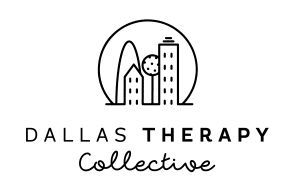Bethany Rothamel
Dallas Therapy Collective

Bethany Rothamel, Ph.D.
(She/Her)
Licensed Psychologist
Psychotherapy with adults
$195/55-minute session, BCBS PPO, Baylor Scott & White, Out-Of-Network Provider

Childhood
Trauma

Depression
Counseling

Spiritual Abuse
Counseling

Anxiety
Counseling

LGBTQ
Therapy
Does this sound like you?
You value meaningful relationships—the ones in which you can truly be yourself and others feel comfortable to do the same—but deep down you can’t help but feel unfulfilled. You believe yourself to be capable of healthy relationships, but you just aren’t sure what’s missing and leaving you feeling disconnected.
You wonder why everyone else is getting their needs met while you struggle to express yours. This leads you to wonder, how do I improve communication with others? How do I set better boundaries at work or with my loved ones? How do I say no to others without feeling so guilty?
You want to be seen for who you really are—but there’s also potentially something really terrifying about that. What if others ridicule you for your vulnerability? Call you weak? Laugh at you or leave you behind? It’s human to want to fit in and feel accepted, but sometimes you feel like you have to sacrifice who you are to make others happy or make your relationships “work.” While you may be able to maintain relationships by doing this, you wish you were thriving in them instead.
Your sense of self-worth is usually measured according to others’ standards instead of your own. In fact, you often hear the same messages play over and over in your head about what it means to be a “good enough” person, spouse or partner, parent, child, friend, Christian (or not), student, employee, etc. It’s hard not to live by these guidelines because you admire the people or institutions that taught you them, or because going against the grain could mean facing real consequences. At the same time, choosing to live according to norms set by others may feel inconsistent with who you are—a multidimensional person incapable of fitting neatly into a one-size fits all model.
Sometimes you feel stuck, because you developed a pattern that once helped you survive, but now you’re questioning whether it’s time to let it go. You know it’s not serving you the way it once used to—actually, it’s leaving you feeling lonely, misunderstood, or even hopeless.
Can Therapy Help?
Real connection is possible. Envision for a moment what it would be like to show up unapologetically as yourself, and to feel wholly valued for doing so.
When experiences or relationships from our past hurt us or end abruptly, we often feel protective of ourselves and do what we need to do preserve our emotional (and sometimes physical) well-being.
If you’ve experienced rejection or negative reactions from major figures in your life, it’s no wonder it’s hard to imagine that being your true self could invite a different reaction—that others could understand you and embrace you fully. However, the fact that you remain hopeful about the possibility of living a more authentic life is a powerful precursor to change through therapy.
Vulnerability isn’t easy, but its benefits are worthwhile. Showing up authentically invites others to do the same, meaning you won’t have to feel stuck, alone, or superficial anymore. It may surprise you, but people facing major rifts in relationships can repair and even strengthen connections by increasing their willingness to be open and sincere with one another. As you begin to take risks to lead a more authentic life, I bet you’ll increase connectedness not only with others, but also with yourself.
How I can help…
My approach is relational and collaborative, with the aim of building a foundation of trust and comfort in our relationship from the very beginning. I place a high value on your input and the important role you play in therapy—by you sharing your experiences, expectations, and hopes with me, I can more readily meet your needs. This means you’ll likely hear me ask for feedback regularly about how therapy is going, as well as invite you to share about your experience as you feel comfortable. I also place a strong emphasis on understanding how your various roles and identities impact your life experiences. Whether you experience pride, shame, or a mix of feelings about the many facets of yourself, I am committed to understanding your unique experience and embracing all parts of you.
Through our work together, I intend to help you recognize and expand upon your strengths, as well as learn new skills, including setting boundaries, discovering and asserting your needs, living according to your values, and increasing authenticity. We’ll go at your pace, with you beginning to take risks to try new ways of being as you feel comfortable. Of course, asking you to show up vulnerably would be unfair if I wasn’t willing to do the same—I’ll share my honest feedback and reactions with you, while also remaining open to you having a different lens. As is the case with any relationship, I look forward to deepening our understanding of one another over time. I hope to share with you my warmth, patience, and calm demeanor, as well as my wit, sensitivity, and passion for this work. In turn, I look forward to learning about you and helping you grow in your understanding of yourself. As clients have learned to get in touch with themselves more authentically, I have had the honor of witnessing them realize their inherent worth and capacity to impact those around them, both in- and outside of therapy.
When I’m not at work…
You can find me scrapbooking, doing puzzles, going to concerts, spending time with my partner and family, or snuggling with my mini dachshund, Zuko!

Credentials
- Ph.D. in Counseling Psychology, Texas Woman’s University (2020)
- M.A. in Counseling Psychology, Texas Woman’s University (2016)
- B.S. in Psychology, with a minor in Women and Gender Studies, Texas A&M University (2013)
- Licensed Psychologist (Texas)
My Full Specialties Include:
- Anxiety
- Depression
- Equity and social justice issues
- Relationship concerns
- Body image/disordered eating concerns
- Relationship and sexual violence
- Spiritual identity and spiritual abuse
- Trauma recovery
- Sexual identity
- Gender identity
- Family of origin issues
- Self-compassion
- High Sensitivity
- Clinicians in training

You must be logged in to post a comment.